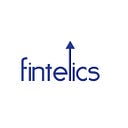Member-only story
Blockchain Technology for Tourism
Blockchain technology is all set to completely transform the way people travel. The implementation of blockchain here will help offer an entirely new experience overall, thus altering the methods we currently use, from reserving travel tickets to booking hotel rooms, i.e., making a lot of the procedures involved seamless.
The tourism market worldwide passed approximately $8 trillion all the way back in 2017. Its yearly growth rate is predicted to be at least 4.7%, which means it could grow up to $11.38 trillion by 2025. Therefore, the usage of technologies such as blockchain in tourism will only assist in expanding the sector. A lot of firms have noticed the opportunities that could be seen from this and have implemented blockchain in their workplaces.
Decentralizing Payment Systems
Blockchain allows for transportation assets to be optimally used, from the initial planning phases to those that involve travel. The main implementation of blockchain for the tourism sector is to provide payments that are both secure and traceable. The initial phase of international travel entails the booking of travel tickets. Such a procedure is simple nowadays. That said, this same process can be made even simpler through blockchain-based mechanisms. The Winding Tree, for example, is a distribution ecosystem that is open-source and helps in smoothing the procedure of booking both hotel and flight tickets. This, in turn, has caused transactional expenses to fall by 20% for customers using the blockchain service for ticket bookings.
Airline firms such as Air New Zealand have integrated blockchain, which has made the procedure of selling tickets less complex. Furthermore, it could also be used to eliminate or drastically minimize the over-boarding of flights. Using blockchain technology, payments for services can be executed rapidly and safely. As a result, it allows for a speedier checkout amidst transactions.
Blockchain also utilizes digital currencies such as Bitcoin and Ethereum, which removes the requirement for digital payment schemes that depend upon third-party payment applications. The payment can then be settled among the parties that are directly involved, which then entirely eliminates any potential intermediaries such as payment merchants, for instance. Even the demand for payment gateway firms such as Visa and MasterCard could be made null…
